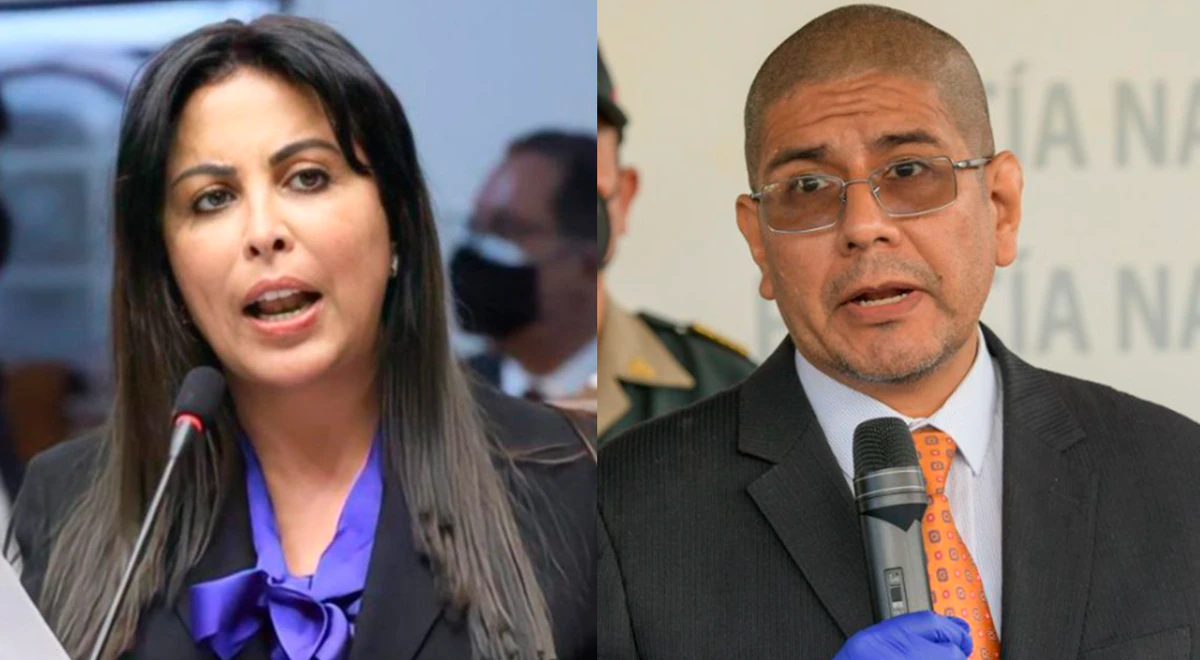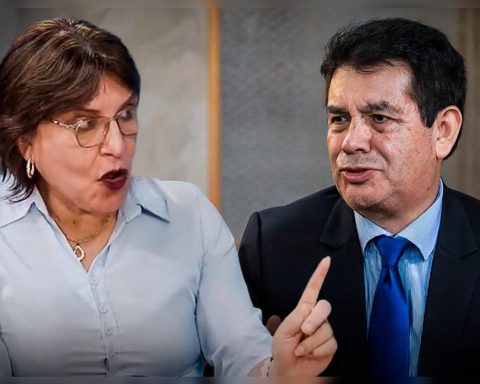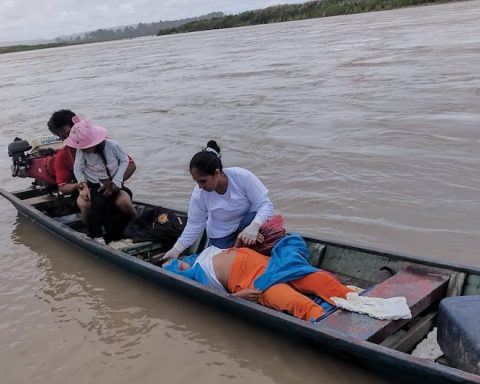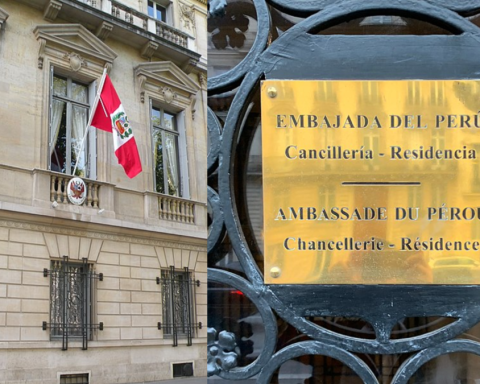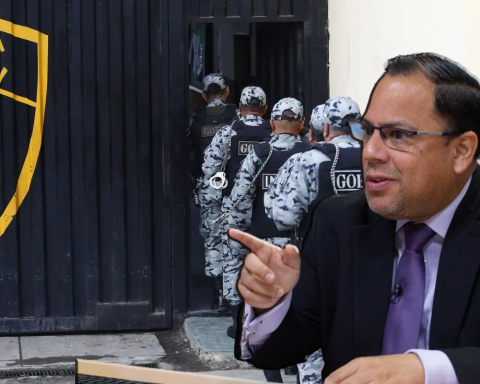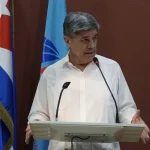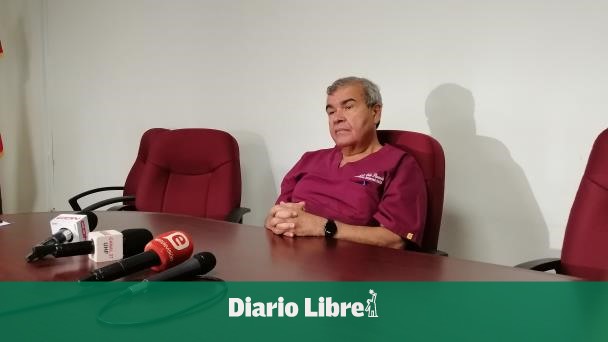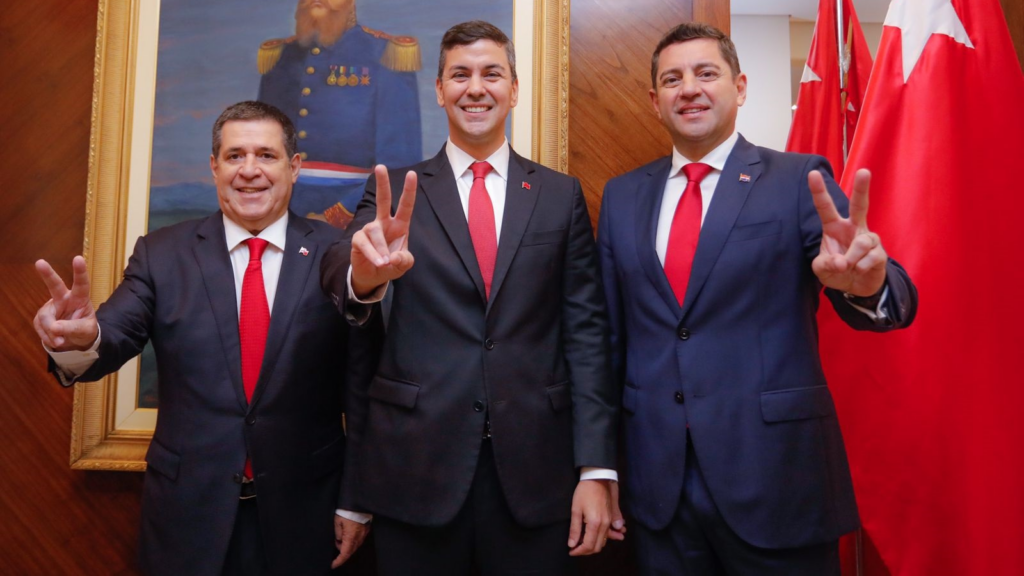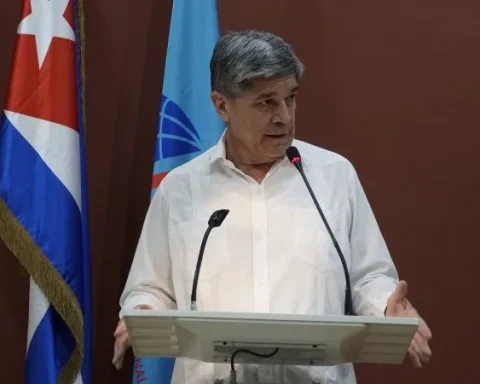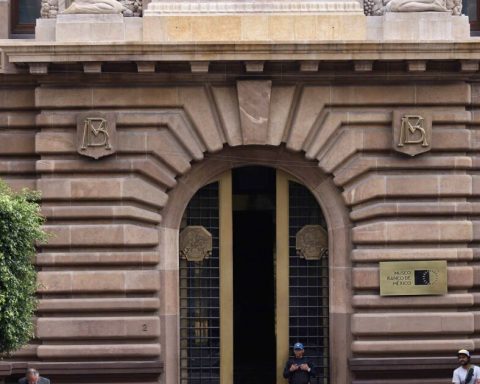Congresswoman Patricia Chirinos, from the Avanza País caucus, presented before the Congress, last Thursday, June 16, a constitutional complaint against the Minister of the Interior, Dimitri Senmache. According to the legislator, this situation is due to the constitutional infractions committed by Senmache by having a “political responsibility” on the disappearance of former MTC minister Juan Silva.
However, with a motion of censure enlisting by Fuerza Popular against the head of the Mininter, it is important to review the situation in which Senmache would remain; if there is an alleged constitutional infraction, as Chirinos presents it or if, on the contrary, this complaint could be dismissed by the Legislature.
In the document presented by the third vice president of Congress, it is specified that Senmache would have violated the Constitution in articles 39, 44, and 119; however, when verifying these in the Magna Carta, only reference is made to the responsibilities that a minister has with respect to his portfolio and the nation. Is Silva’s flight then a constitutional infraction?
YOU CAN SEE: Álex Kouri is not among the candidates for the Regional Government of Callao despite the fact that he campaigned
The constitutionalist Heber Campos considers that the lack of initial action declared by the Minister of the Interior and his attempts to distance himself from responsibility for the escape of John Silva would not be sufficient for an infraction to be issued in his case and that, to begin with, an investigation should be initiated to determine the respective responsibilities.
“Does not set up an infraction, It would constitute an infraction the fact that it is proven —and in a forceful way—, that he is directly part of the events that led to the escape of former Minister Silva (…)”, explained Campos for The Republic.
But this would not exempt him from having had a certain degree of guilt in the escape of what is now the most wanted man in the country. The constitutionalist specified that criminal or administrative responsibility and political responsibility are two different things, and that the latter “occurs regardless of whether there has been direct participation in illicit acts”.
YOU CAN SEE: Verónika Mendoza after shielding Manuel Merino: “The parliamentary dictatorship intensifies against justice”
For the constitutionalist César Delgado Guembes, “All these details must be analyzed by the Permanent Commission in the investigation stage, for now all we have is a complaint that will first have to be admitted and processed. If it is not admitted and is processed with the votes of the members of the Subcommittee, this analysis cannot be made”.
This constitutional complaint process takes between two or three months, transcends changes of legislative periods and it has more requirements such as censorship or interpellation against a minister, figures that can also be used and applied by Congress, although not at the same time or for the same reason.
Delgado Guembes clarifies that, while a motion of censure is carried out for the corresponding facts and carries as a basis the loss of confidence of Congress towards Senmache, generating his departure (like what happened with Betssy Chávez); in the constitutional complaint “it must be objectively proven that there has been an infraction of the constitution and on that basis be able to disqualify it”
YOU CAN SEE: Manuel Merino is armored by the Subcommittee on Constitutional Accusations of Congress
Campos, for his part, considers that the measure taken by Chirinos is not entirely viablebecause “a congressman could at any time present a constitutional complaint against a high-ranking official and his prerogative, but from there to whether it will be accepted or lead to a sanction, that is something else.”
On the other hand, Delgado conceives that these measures would have to be taken depending on the intentions that Congress has with respect to the Minister’s head. “What should be done in strict terms would be use any parliamentary process on the basis of the greater efficiency that each of the two has”he asserted.
The specialist considered that “if what is sought is to remove only the minister, the easiest thing is a censorship, but in the other case, something more than just dismissal is intended (…) it would have to be shown that the reason for the constitutional complaint is that it seeks to disqualify that person due to seriousness of the offense, and if it is not enough for censorship, it would not be enough for that either (a disqualification).”
YOU CAN SEE: The opposition in Congress now goes for the Minister of the Interior
What would Dimitri Senmache have to face in the following weeks?
For now, the constitutional complaint filed by Chirinos must be processed and for this, a qualification report that will be prepared by the Subcommittee on Constitutional Accusationswhich will have to review admissibility and procedure.
“Once they analyze it, they present their qualification reports, it goes to the Permanent Commission and the Permanent Commission will give them a period of 15 business days to investigate and then what has happened now with Mrs. Boluarte’s report will happen”specified Delgado Guembes.
While this complaint follows a course similar to that of the vice president, Congress is seeking the minimum 33 signatures for the censorship of Senmache, which has been promoted by Fujimorism. But this is not the only party that seeks to challenge him, since Renovación Popular is also after the departure of the head of the Mininter.
With three intentions of taking measures against him by Congress -one of them already in process-, the minister faces a situation that could easily be classified as the most complicated in his few 25 days at the head of the Ministry of the Interior.
